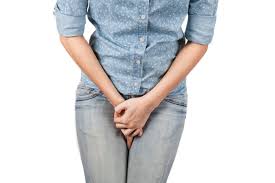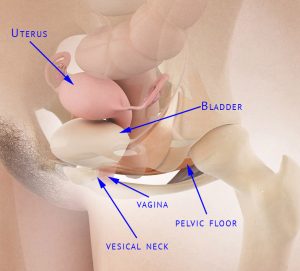 Incontinence affects one in three mothers, and one in eight women between 18 and 23 (most of whom have not yet been mothers). By the age of 75, two in five people will experience incontinence. And these are only the reported figures.
Incontinence affects one in three mothers, and one in eight women between 18 and 23 (most of whom have not yet been mothers). By the age of 75, two in five people will experience incontinence. And these are only the reported figures.
You may not realise you have incontinence. For some, it is only strenuous exercise such as star-jumps and trampolining that suddenly remind them of the need for urinary exercises. Others may notice when they sneeze or cough. Others have it so frequently, they become so embarrassed that they get scared to leave the house.
 Incontinence may be:
Incontinence may be:
- Stress Incontinence – often caused by weak pelvic muscles or ligament damage, related to childbirth or old age. The weak muscles may result in leaks during coughing, sneezing or exercising.
- Urge Incontinence – the sudden desire to urinate. It may be caused by medical problems such as Parkinsons, diabetes, or poor bladder habits.
- Faecal Incontinence – may be caused by bowel disorders, constipation, or muscle weakness after childbirth.
Incontinence Remedies
An operation to insert tension-free vaginal tape to support a sagging urethra, keeping it closed during sudden movement.
Better urinary habits. Going to the toilet when you need to. Sitting properly on the toilet, in a squat-like position, with your feet on the floor, hands on your knees, leaning forward and breathing out, to increase abdominal pressure.
Healthy eating habits. High-fibre foods, avoiding caffeine and fizzy drinks.
Pelvic exercises. Six squeezes for six seconds, three times a day, in an upwards movement.